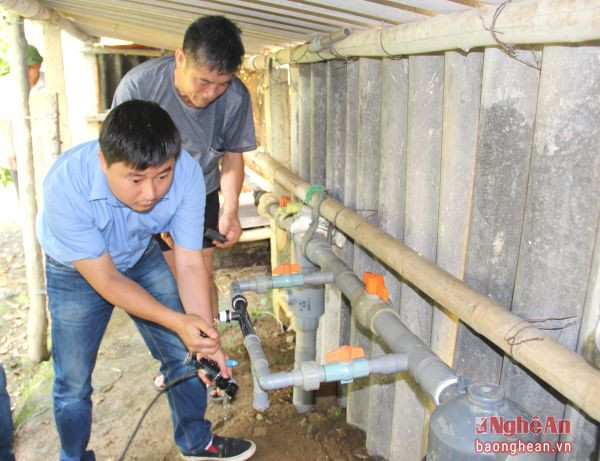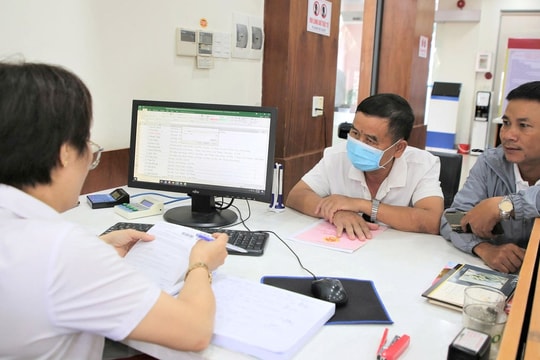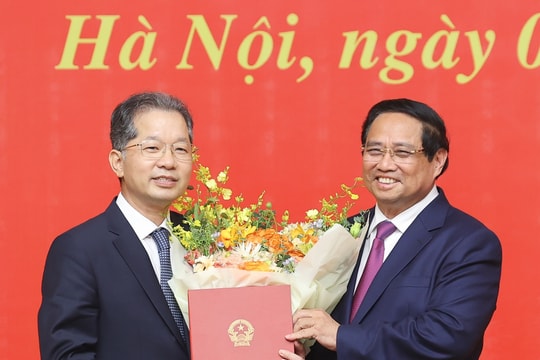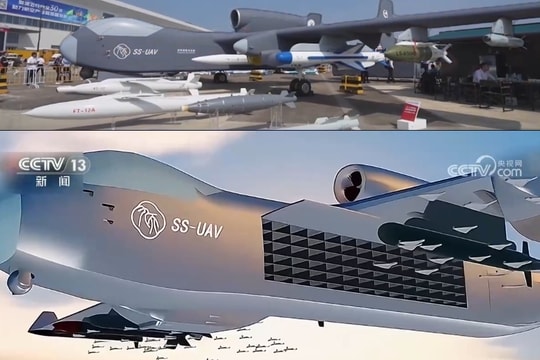Promoting business thinking for Nghe An farmers
(Baonghean) - Editor's note: Nghe An Newspaper excerpts and publishes the content of the speeches of delegates attending the Workshop "Developing Nghe An to 2020 in the spirit of Resolution 26 - NQ/TW of the Politburo".
In the National Criteria for New Rural Areas, the most important and pivotal criterion is the income criterion. Because without a way to generate income regularly, other criteria will be difficult to maintain in the long term because of the lack of resource assurance. Therefore, it can be said that the income criterion must become the key to building new rural areas in Nghe An in particular and Vietnam in general.
However, the question is how to maintain and increase farmers' income? To answer this question, we can start by analyzing Israel's experience. Israel is only 1/58th the size of Vietnam, and its population density is among the highest in the world. But with only 2.5% of the population working in agriculture, Israel not only ensures enough food but also exports up to 3 billion USD worth of agricultural products. One hectare of land in Israel currently produces 3 million roses, or 500 tons of tomatoes/crop; in particular, one Israeli cow produces up to 11 tons of milk/year - a productivity that no other country in the world can match. When commenting on this achievement, many people believe that the secret to the success of Israeli agriculture is technology. But if we carefully analyze the characteristics of the Israeli people, we will see that this is just the tip of the iceberg.
The hidden, decisive part is their tradition of business thinking. Israelis are good at commerce, so they always start their work with the question: Where can we sell? In other words, they start with sales, with the market. For example, the target market for Israel's agricultural product exports is the EU because the EU's people have high incomes and strict product standards. These two requirements are suitable for the core competencies of the Israeli people: intelligence and wisdom. The level of Israeli farmers is also very high, all of them have finished high school; many of them return to the fields after finishing university, then bring their farming experience to university.
Through the experience drawn from Israel, it can be seen that, for Nghe An’s rural areas, business thinking must come first, as a premise for subsequent thinking and actions. However, whether this lesson is successfully applied or not depends on the approach to the unique circumstances and characteristics of Nghe An’s farmers.
According to research by scientists, Nghe An people have the following positive characteristics: High idealism in the soul; steadfast, frank and honest; intelligent; frugal; valuing love and loyalty. Besides the positive characteristics, Nghe An people also have some negative characteristics as follows: rigidity, high self-esteem.
 |
| Technical staff of Khang Thinh Irrigation Technology Joint Stock Company, representative of Netafim Group (Israel) in Vietnam, inspects the drip irrigation system for people in Minh Hop commune (Quy Hop). Photo: PV |
However, in reality, there is a hidden but very important and consistent characteristic of the majority of Nghe An people in general and Nghe An farmers in particular, that is, they often only develop positive qualities in unfavorable conditions or under pressure. For example, according to domestic and foreign scholars, Nghe An people are intelligent and talented but can only develop them when they go abroad, it is very difficult to develop them locally. Because they go abroad, face a strange environment, and are treated differently, the intelligence and creativity of Nghe An people are promoted, and their weaknesses do not have an environment to rise. From this perspective, promoting business thinking, instead of supporting as usual, is the way to create pressure as well as motivation for Nghe An farmers to develop their core strengths, so that they can truly participate in the value chain in agricultural production.
Based on the above arguments, we believe that promoting entrepreneurial thinking for farmers is a strategic solution to build a prosperous and civilized rural area of Nghe An. This solution is highly feasible because it meets two basic requirements: 1) Allocating resources wisely; (2) Originating from the core competencies of Nghe An people in general and farmers in the province in particular.
So how to promote business thinking for Nghe An farmers?
After the discovery, it is necessary to find feasible and effective solutions. To find implementation measures suitable for the actual situation, a number of field surveys were conducted in a number of localities - where farmers have a clear business mindset: the coastal communes of Quynh Luu district; Dien Ky, Dien Hong, Dien Thap communes (Dien Chau)... The common characteristics of these communes are economic development, people's income is very high, from commune leaders to each person, they all have business-like thinking and actions. Through the above surveys, the conclusion is that rural areas of the province should implement a project to research levers to promote business thinking for farmers, then conduct pilot projects to deploy and replicate. If levers are not used but still approach traditional methods, it is difficult to succeed and may waste a lot of resources. For example, some leverage measures that can have long-term effects include:
Firstly, attract branded enterprises with a true entrepreneurial spirit to invest in agricultural activities. These enterprises will be the core to create opportunities for farmers to participate in the value chain, from which they will be motivated to learn and adapt to the requirements of the enterprise. The case of Dalat Hasfarm is a typical example of this measure. Currently, the Dalat Hasfarm cut flower alliance has 150 farmers and 40 local suppliers participating. Each year, this alliance provides the company with 22 million branches of various flowers for domestic consumption and export.
Second, use preferential lending policies for farmers who have business capacity or have been trained in business. According to this measure, farmers will be supported with loans and other incentives after being trained in business. In developed countries, farmers can only get loans and support when they have agricultural training certificates.
Third, appoint or select village and commune leaders from those who do business effectively. For those who are holding positions, organize in-depth training on business thinking and foster business management capacity. To build a prosperous and civilized new countryside, the role of farmers is decisive. They must have an entrepreneurial spirit in thinking and action. However, to do this, first of all, policy makers and policy implementers must have an entrepreneurial spirit, demonstrated through policy content and practical actions.
Fourth, create a spiritual living space that focuses on the prosperity and wealth of the village and commune. Nghe An people have long been famous for protecting the Fatherland and being the support for dynasties and regimes, not submitting to any enemy in the history of building and defending the country thanks to the tradition of not being humiliated and resisting tyranny, which is fostered through a very rich and creative space for folk beliefs. This lesson should be transferred to apply to building a prosperous and civilized countryside in the province.
Fifth, breaking the closed nature of rural areas through information technology projects. Information plays an important role in liberating thinking, especially for farmers, because of the characteristics of village life and the inconvenient transportation infrastructure compared to urban areas, providing information through social networks is the shortest way to build business capacity.
In short, promoting the thinking and working methods of enterprises for farmers allows Nghe An province to help farmers develop their endogenous capacity, create stable income, thereby creating the premise to build and ensure the achievement of two core values: prosperity and civilization, without being too dependent on external resources. This solution should be considered as a strategic breakthrough in restructuring the agricultural sector as well as building new rural areas in Nghe An in the current period.
Assoc.Prof.Dr. Hoang Van Hai
(Director of the Institute of Business Administration, University of Economics, Vietnam National University, Hanoi)
| RELATED NEWS |
|---|

.jpg)
.jpg)





